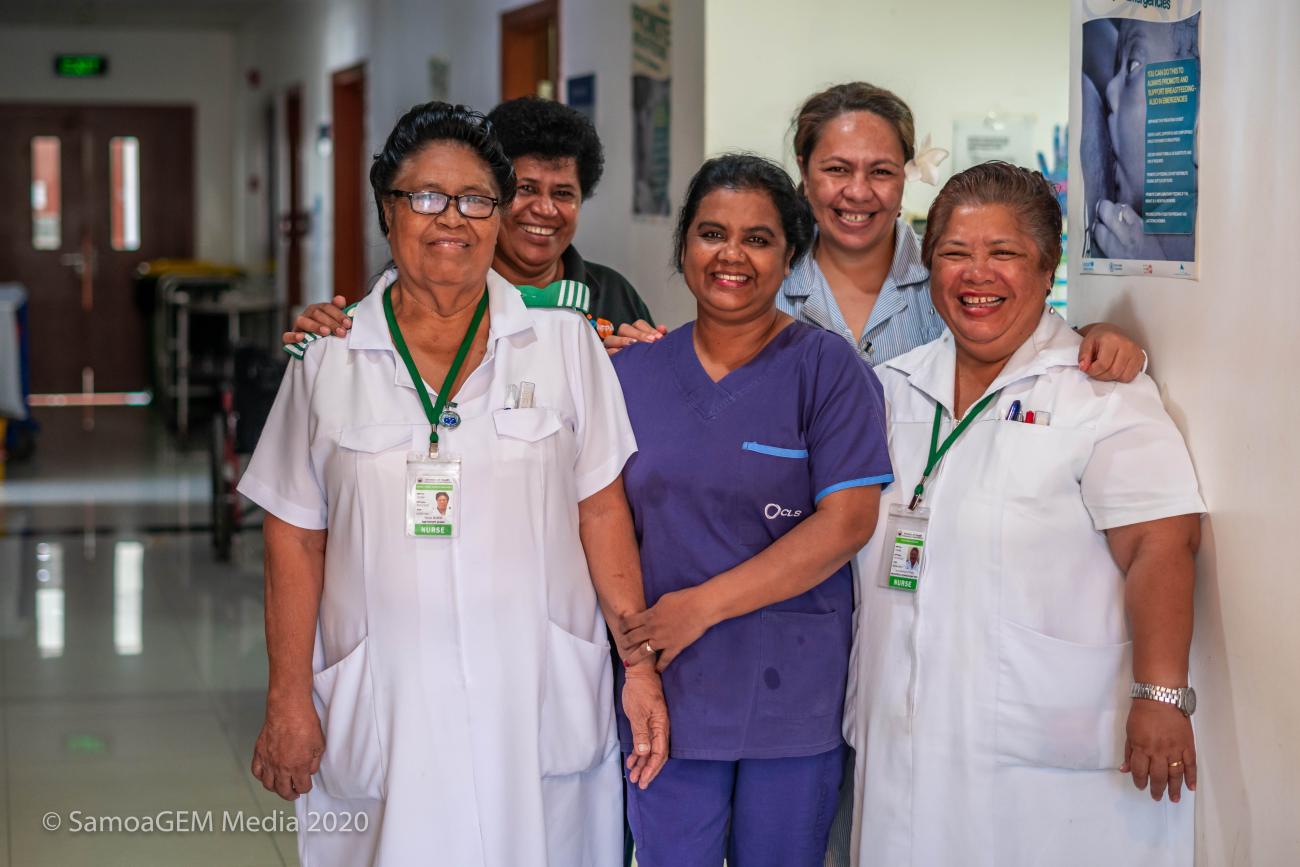Empowering midwives to provide a safe world for pregnant mothers and newborn babies.| Celebrating midwives.

Midwives are often called “unsung heroes” for the enormous part they play in saving lives, improving people’s health, and helping families thrive.
The International Day of the Midwife, celebrated globally on May 5th each year, is a reminder of the difference that midwives make behind the scenes, to bring precious lives into our world.
Midwives, ensure that every woman receives support and care during pregnancy, labour and birth.
The midwives in Samoa and the crucial role they play, deserves a standing ovation.
The commitment to empower current and aspiring midwives any where in the world, including Samoa, is a promise of the United Nations delivered on by the United Nations Population Fund (UNFPA), the agency that ensures the positive impact of high-quality midwifery care on the sexual and reproductive health of women and families.
Midwives contribute significantly to improve sexual, reproductive, maternal, and newborn health and reducing maternal and newborn mortality. It is why education and training for midwives is a priority.
UNFPA, together with the Government of Samoa have shown great commitment to educate and empower current and a new generation of midwives under the Transformative Agenda (TA) programme. The TA, funded by the Australian Government, aims to reduce unmet need for family planning through various interventions.
One of these interventions is the National Midwifery Curricula that has been revised and updated to reflect the focus on midwifery services under evolving circumstances and unprecedented health events.
With technical assistance from the Burnet Institute, UNFPA, the Ministry of Health, School of Nursing of the National University of Samoa, Samoa Nurses Association and Samoa Family Health Association, has ensured that the National Midwifery Curriculum aligns with global standards on family planning, adolescent sexual and reproductive health, the needs of persons with disabilities and addressing violence against women.
Samoa envisions a cohort of midwives, successfully completing midwifery courses under the revised curriculum, armed with the knowledge, skills and attitudes required to work effectively, reducing maternal and newborn mortality, and improving the health and well-being of women, families and communities.
It is another step for Samoa to achieve the Sustainable Development Goals and towards a healthier and more prosperous economy.
-ends-
The wider impact of safe and effective, sexual reproductive health and midwifery
Around 27 per cent of women have an unmet need for family planning—that is, she wants to delay pregnancy or does not want to get pregnant but is not using any contraception. They empower women and adolescent girls by providing them information and services on sexual and reproductive health including family planning.
Moreover, the rate of adolescent girls aged 15 to 19 years giving birth in Samoa is 55 births per 1000 girls. This is important, because when a girl becomes pregnant, her health is endangered, her education and job prospects are damaged, and she becomes more vulnerable to poverty and exclusion.
These numbers, especially in the context of the extraordinary challenges the world is currently facing—including the health and economic crises resulting from the COVID-19 pandemic, impacts of climate change, and, in the case of small island states such as Samoa, the additional threat of natural disasters—underscore the need for investing in health and well-being through midwives.
The effects of quality midwifery extend beyond maternal and child health. Evidence shows that beyond preventing maternal and newborn deaths, quality midwifery care improves over 50 other health-related outcomes, including in sexual and reproductive health and immunization. As countries around the world work towards the Sustainable Development Goals (SDGs)—a set of 17 goals for a more sustainable future for all to be achieved by 2030—a common focus is health. Without healthy populations, economies cannot be productive and thrive.
About UNFPA:
UNFPA is the lead UN agency for delivering a world where every pregnancy is wanted, every childbirth is safe, and every young person's potential is fulfilled. Our mandate is more crucial and central to global development in the era of the 2020 Agenda for Sustainable Development, underpinned by the 17 Sustainable Development Goals. UNFPA expands the possibilities for women and young people to lead healthy and productive lives.
*This story was developed based on the Op-Ed produced by UNFPA.



